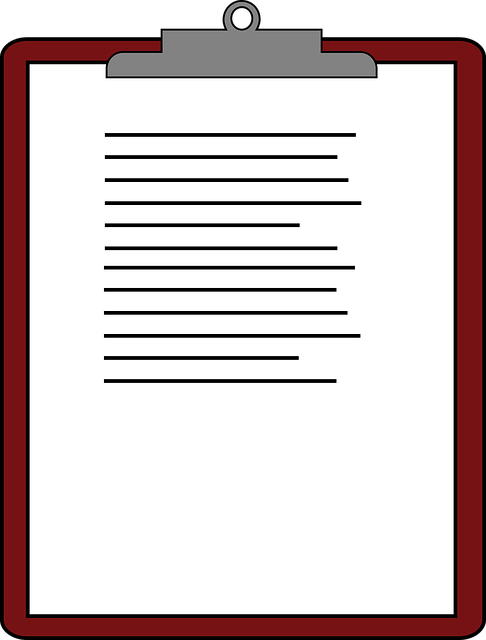Accurate translation of UK technical reports and white papers is essential for effective communication, avoiding legal issues, and making informed decisions. Top-tier services prioritize quality through rigorous processes, peer review, and proofreading to maintain grammatical correctness and technical integrity. When selecting a provider, focus on native translators with industry certifications and experience in handling similar documents. Look for providers with a proven track record, expertise in translating scientific and technical content, and offerings tailored to your project's specific needs, including turnaround times and quality assurance processes.
Are you in need of professional translation for UK technical reports? Accurate communication is vital, especially in highly specialized fields. This comprehensive guide explores the intricacies of translating technical documents, from understanding cultural nuances to navigating complex terminology. We’ll walk you through the process, highlight key considerations when choosing a service, and discuss the benefits and challenges of handling UK technical reports and white papers. Discover how expert translation services can ensure your content shines globally.
- Understanding the Importance of Accurate Technical Translation
- Key Considerations When Choosing a Translation Service
- The Process: From Report Submission to Final Delivery
- Benefits and Challenges in Translating UK Technical Reports and White Papers
Understanding the Importance of Accurate Technical Translation

Accurate technical translation is paramount when dealing with UK technical reports and white papers, as it ensures clear communication of complex ideas and data across linguistic barriers. Inaccurate translations can lead to misunderstandings, misinformed decisions, or even legal issues, especially in highly regulated industries. Professional translators specializing in this field bring a deep understanding of both the source language and industry-specific terminology, resulting in precise and contextually appropriate renditions.
Translation services for UK Technical Reports and White Papers should adhere to strict quality standards, employing rigorous processes such as peer review and proofreading. This ensures not just grammatical correctness but also maintains the original document’s technical integrity. When selecting a translation provider, it is crucial to look for native-speaking translators with relevant industry certifications and experience in handling similar documents.
Key Considerations When Choosing a Translation Service

When selecting a translation service for UK technical reports or white papers, several key considerations come into play. Firstly, ensure the provider has a proven track record and expertise in translating scientific and technical content. Technical accuracy is paramount; look for translators who are not just fluent but also have a solid understanding of the subject matter.
Secondly, check if the service offers proofreading and editing services as part of their package. This ensures that your document is not only linguistically correct but also adheres to the original intent and structure. Additionally, consider turnaround times and whether the provider can meet your deadlines, especially for time-sensitive projects.
The Process: From Report Submission to Final Delivery

When you’re in need of professional translation for UK technical reports or white papers, the process typically begins with your submission. Translation agencies will first assess the document’s complexity and unique requirements. This involves understanding the industry-specific terminology used and ensuring cultural nuances are considered. Once accepted, the report is translated by experienced linguists who bring their expertise to the table.
Post-translation, quality assurance (QA) becomes paramount. The translated document undergoes rigorous checks for accuracy, consistency, and fluency. This QA process ensures that the final delivery meets high standards and aligns with the original content’s intent. Following approval, the translated report is formatted according to your specified guidelines, ready for distribution globally.
Benefits and Challenges in Translating UK Technical Reports and White Papers

Translating UK technical reports and white papers offers numerous benefits, especially in a globalized marketplace where information exchange is vital. Accurate translations enable organizations to reach broader audiences, expand their market presence, and foster international collaborations. Professional translation services ensure that complex technical content is conveyed clearly and precisely in the target language, preserving the original meaning and intent. This is crucial for industries like pharmaceuticals, engineering, and renewable energy, where regulatory compliance and data integrity are paramount.
However, these translations present unique challenges. UK technical reports often adhere to specific formatting, terminology, and style guidelines that must be strictly followed. Translators need to be well-versed in both the source and target languages, as well as the relevant technical fields, to capture nuanced meanings accurately. Cultural differences in writing styles and even subtle variations in terminology across regions can impact comprehension. Moreover, ensuring consistency throughout lengthy documents requires meticulous attention to detail and a deep understanding of the industry. Translation services for UK Technical Reports and White Papers must be adept at navigating these complexities to deliver high-quality, reliable results.
When it comes to technical reports and white papers, accurate translation is paramount. Choosing a reputable translation service specialised in UK documents ensures quality, consistency, and cultural relevance. By understanding the process and considering key factors like expertise, experience, and quality assurance, you can effectively navigate the challenges of global communication. Translation services for UK Technical Reports and White Papers play a vital role in bridging linguistic gaps, fostering international collaboration, and promoting access to critical information.
